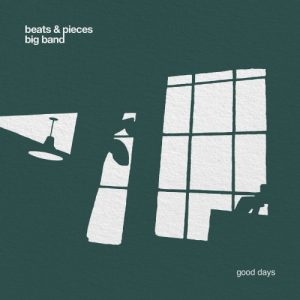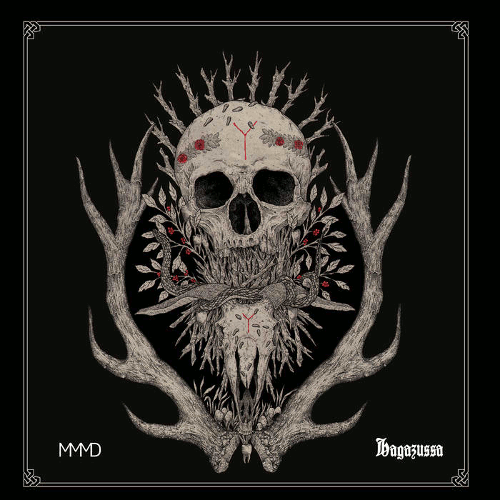 The Beats & Pieces Big Band has been together in one form or another since 2008 and is doing its best to breathe new life into classic big band jazz.
The Beats & Pieces Big Band has been together in one form or another since 2008 and is doing its best to breathe new life into classic big band jazz.
Ben Cottrell‘s collective bring that sense of wonder and momentum smoothly into the twenty-first century and Good Days, their third studio long player, takes any preconceptions the listener may have and alchemically mixes them with modern influences: found sounds, improv and subtle textures, to produce an up-to-date salve for any jaded souls.
Opening with the sound of bird song and gentle electric piano, we are introduced to to the combo in a lullaby-like calm that extends into a kinetic full-group excursion; the drums are progressive and the horns insistent, a rousing message to be impressed or even seared upon the listener’s consciousness. You feel the group has some urgent need to convince the listener of what they are missing, and a Rhodes lends a touch of light as the diversity and character of the players start to shine through. The group pulls jazz through a far more cinematic and diverse spectrum than most, the smoky bass lending an air of long, listless nights accompanying a soft yet romantically hopeful sax which draws lazy circles in the air. The beat is barely moving on “Elegy”, but there is a tear-jerking sensation to the slow build where a dusty clarinet moves in sinuous shapes. Peripheral textures add to the overall feel, and you just sense the confidence oozing.The listener might recognise the feeling stirred by some of the motifs, but the willingness to throw in a little improv enables them to be re-imagined, leading to new angles and a slipperiness that is impressive, like a family of eels squeezing out of any imposed grip and leading further into the future. The sound on “Cminriff” is welcoming yet with an edge; you shouldn’t make yourself too comfortable because the unexpected will always be waiting, a shadow hiding some fresh sound or a spiritual search that tries to throw light into those corners.
The sense of fun on “(Blues For) Linu” is infectious, their improv leanings never overwhelming the listener but leading in and out of ragtime reflections, the jittery piano apparently having the time of its life as daubs of sketchy guitar and a daring and well-weighted drum solo draw our attention constantly, squeezing every drop from a hypnotic refrain. It does all sound rather effortless and by the time the end of the album arrives, a gentle reprise of the opening piece which sounds like something Frank Sinatra might have itched to lay some words over; the journey is over, but the smile that accompanies that journey is a long-lasting one.-Mr Olivetti-



